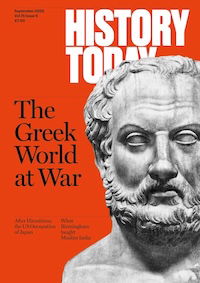George III to the United States Sendeth
On November 11th, 1791, George Hammond, the first British Minister to the United States, presented his credentials to George Washington. Despite favourable auguries, writes Leslie Reade, his was to prove “a stormy and frustrating mission.”


